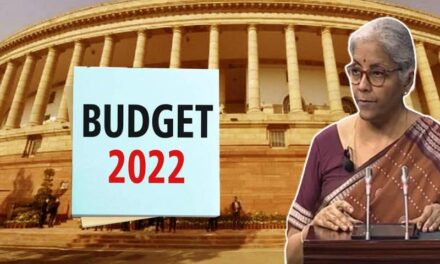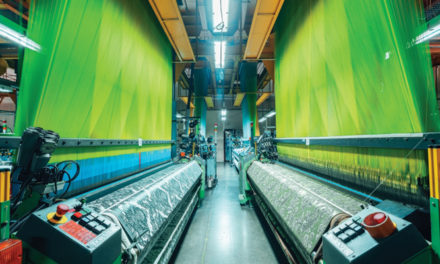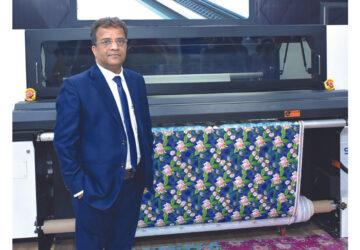 The Industry welcomed the Union Budget 2021-22 recently presented by Union Finance Minister, Nirmala Sitharaman, is encouraging and growth oriented.
The Industry welcomed the Union Budget 2021-22 recently presented by Union Finance Minister, Nirmala Sitharaman, is encouraging and growth oriented.
We hereby are covering the leading Association’s reaction on the same…
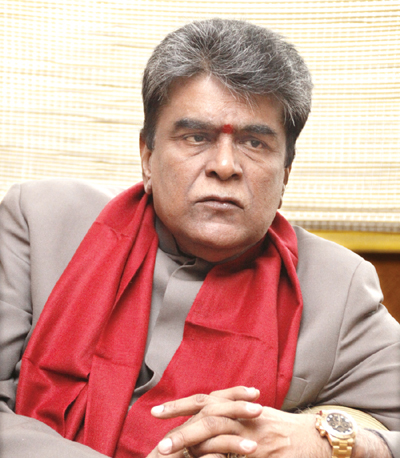
Dr. A Sakthivel, Chairman, Apparel Export Promotion Council (AEPC)
Apparel Export Promotion Council (AEPC) Chairman Dr. A Sakthivel welcoming the Union Budget 2021-22 presented by Hon’ble Finance Minister Nirmala Sitharaman recently, he said that the Budget takes care of all the sectors and will ensure robust economic recovery going forward.
“I sincerely thank the Hon’ble Finance Minister for taking care of all the sectors including the apparel sector. This is one of the finest budgets considering the current situation due to the coronavirus pandemic. All key sectors like health, agriculture, infrastructure, finance and skilling have been covered well. It will improve the economy,” Dr Sakthivel said.
The Chairman particularly thanked the government for the Budget decisions that will promote production and export of manmade fibre (MMF) based garments.
“Our main request was related to MMF garments and that has been considered by the government. The `10,683 cr Production Linked Incentive (PLI) scheme for MMF garments and technical textiles, along with new Mega Investment Textile Parks scheme for setting up seven textile parks in India over three years will bring in huge investment in the MMF sector,” Dr Sakthivel said.
The Chairman thanked the Ministry of Textiles for the encouragement given to the MMF garments. “The mega textile parks with plug-and-play facilities by the government will create global export champions. These will help in creating world class infrastructure in the textile sector, bring in investment, increase exports and provide employment.”
He said that the focus on infrastructure highways, railways and ports is a welcome decision as it will go a long way in improving the logistics and reduce the cost of doing business. Further, the rationalization of GST and customs will also help in easy access to raw materials and export of value added products.
“The reduction in custom duty on nylon will further promote the MMF garments,” said the Chairman, adding that the doubling of budget provision to Micro, Small and Medium Enterprises (MSME) sector with the allocation of `15,700 cr in the coming fiscal will strengthen the sector crucial for employment, manufacturing and exports.
Dr Sakthivel also lauded the announcements related to the shipping sector wherein an allocation of `1,624 cr has been made. A scheme to promote flagging of merchant ships in India will be launched by providing subsidy support to Indian shipping companies in global tenders floated by Ministries and CPSEs. “This will help in reducing our shipping costs,” he said.
The Chairman also welcomed the government’s decision to increase the capital expenditure to `5.54 lakh cr in FY’22 from revised estimate of `4.39 lakh cr in FY’21 saying it will prop up the economy by improving aggregate demand.

Rajesh Masand, President, The Clothing Manufacturers Association of India (CMAI)
The Clothing Manufacturers Association of India (CMAI) the Apex Association of the Apparel Industry of the Country has welcomed the Union Budget presented recently in the Parliament by the Hon’ble Finance Minister Nirmala Sitharaman.
Rajesh Masand, President, CMAI said that the announcement on the 7 Mega Textiles Parks was the highlight of the Budget directly impacting the Textile Industry. This is in line with the Government’s intention to encourage Mega Projects and increasing the scale of operations in the Textile Industry. This has to be applauded. A particular positive aspect of this scheme is the incorporation of Plug & Play Model which will enable the Members of such Parks to avoid huge Capital expenditure outlays.
Masand further stated that Lack of scale has been the bane of our efforts to increase our share in the Global Trade especially in the Apparel Sector. However, the Government also has to very closely study why the Textile Parks have not really succeeded in the past. It is very crucial to avoid errors of omission and commissions in the past. Otherwise, this will remain one better intended scheme which fails to lift the fortunes of the Textile Industry.
Masand also pointed out that the increase of import duty on cotton and cotton fiber may not impact the Industry too adversely since the current imports are at a miniscule level. However, this does come at a time when the industry is reeling from an unprecedented increase of raw material prices especially Yarn and could send a wrong signal.
In an indirect manner though, the Budget has made several announcements which will have a positive impact on Consumer spending – such as increases in infrastructure and overall Government Expenditure – and this will help the Industry, especially the Apparel sector.
The permission to form a One-person Company may also indirectly benefit the smaller Apparel manufacturers, many of whom are in the Micro sector and one-man shows. They are likely to get much more support from the Banking support than before. The increase of the Tax Audit slabs should also benefit the smaller members of the Apparel Sector.
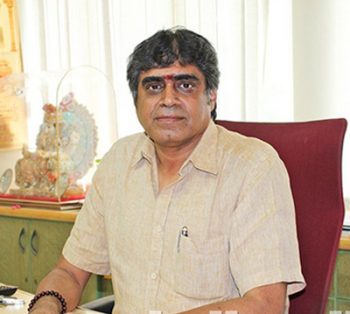 Raja. M. Shanmugham, President, Tirupur Exporter’s Association (TEA)
Raja. M. Shanmugham, President, Tirupur Exporter’s Association (TEA)
TEA President welcomed the Union Budget 2021-22 and noted that it is a pragmatic Budget presented to address all sectors issues at a time when our economy is getting revived back to normalcy. Raja. M. Shanmugham welcomed the Fund allocation to Roads and Highways Infrastructure facilities and specifically to Tamil Nadu State at an investment of `1.03 Lakh cr. Chennai – Salem Corridor: 277 Km Expressway will be awarded and construction would start in 2021-22.
While welcoming the launching of much talked Mega Investment Textiles Parks Scheme and establishing 7 Textiles Parks in the country over a period of 3 years with Plug and Play facilities, Raja. M. Shanmugham said as expected, this will enable to create global champions in exports and was hopeful that Tirupur exporters will opt to setup the units in these Parks.
Raja. M. Shanmugham was thankful for allocation of `700 cr for Amended Technology Upgradation Scheme (ATUFs) against `545 cr in last Budget, which will help to clear the pending Capital Subsidy. He appreciated the allocation of `30 cr for Export Promotion Studies against `5 cr in last Budget, a requirement to the industry to know the export potential available for specified products in the unexplored markets. He was also happy to note that allocation of `100 cr for Integrated Scheme for Skill Development, a need of the hour to the Textiles Industry.
On rationalization of duties on Raw Material to Man-Made Textiles, he welcomed the reduction of Basic Customs Duty on Nylon chips, Nylon Fibre and yarn, Caprolactam to 5 percent and this will help for the promotion of Textiles Industry and exports.
He lauded the allocation of `50,000 cr over five years for National Research Foundation to strengthen Eco system of the country and was hopeful that Tirupur would also get benefitted out of this allocation. He was thankful for allowing a new tax exemption for the notified Affordable Rental Housing Projects, which was requested by the Association in the Pre-Budget Memorandum to support for the migrant workers.
He welcomed the proposal to allow Women workers in all categories in the night shifts with adequate protection and reduction compliance burden on employers with single registration and licensing, and online returns. While welcoming the proposal to reduce the time limit for reopening of assessment for income tax proceedings from the present 6 years to 3 years, he said this will be helpful to the taxpayers to concentrate in their mainstream business.
 Sanjay Garg, President, Northern India Textile Mills’ Association (NITMA)
Sanjay Garg, President, Northern India Textile Mills’ Association (NITMA)
Sanjay Garg, President NITMA, welcomed the proposal of Union Budget 2021-22 as the grant to Textile &Clothing sector is budgeted at `3,631.64 cr which is about 10 percent higher than previous year’s revised budget of `3,300 cr in 2020-21. Also, in the present budget, Government has emphasized on Infrastructure Development and Research & Capacity Building as the grant for these sectors has been increased by about 43.7 percent and 77.5 percent respectively as compared to the last year. Share of these sectors in total T&A budget allocation for 2021-22 stands at about 6 percent and 10 percent respectively. Garg briefly touched upon positive measures in budget 2021-22 for textile sector, as details are being analyzed, some of them are as follows:
- Mega Investment Textiles Parks (MITRA) scheme, in addition to PLI&7 Textile Parks to be established over 3 years. He added that the active support and cooperation of the Government the textile industry will become globally competitive, attract large investments and boost employment generation & exports in the years ahead.
- Basic customs duty (BCD) rates on caprolactam, nylon chips and nylon fibre & yarn will be uniformly reduced to 5 percent to spur textile industry, MSMEs, and exports.
- Customs duty on cotton from nil to 10 per cent and on raw silk and silk yarn from 10 per cent to 15 per cent, to benefit domestic cotton and silk growers.
- The taxation changes proposed in the Budget will help and benefit MSMEs in a big way. Measures taken to simplify GST are praiseworthy with the hope that Government will take corrective measures to smoothen the GST further by removing anomalies such as the inverted duty structure. He further added that the custom duty policy announced has dual objectives of promoting domestic manufacturing and helping India get on to global value chain and export better. Garg reiterated that the domestic textile industry will get easy access to raw materials and exports of value added products which will make textile industry globally competitive.
Summing up, he again admired several measures initiated in the budget 2021-22 at the same time he humbly appealed that there is an urgent need of raising customs duty on manmade yarns from 5 to 10 percent, which has not been considered by the Hon’ble Finance Minister. Garg elaborated, that manmade yarn sector which is one of the largest employment generating segments within the textile industry and it’s highly capital and labour intensive industry as well. The unreasonably low-priced imports of manmade yarn into India have been causing considerable amount of injury to domestic manufacturers for last 5 years or so. Industry has deep concerns over the rise in import quantities being dumped into India, which can potentially cause an permanent damage to domestic MMF sector with the cascading effect, from closure of units to NPA’s, and eventually resulting huge employment loss.
 Ashwin Chandran, Chairman, The Southern India Mills Association (SIMA)
Ashwin Chandran, Chairman, The Southern India Mills Association (SIMA)
Stating that the imposition of 10 per cent import duty on cotton is a severe blow for the cotton textile value chain, The Southern India Mills’ Association (SIMA) has appealed to the Prime Minister for withdrawal of the duty. However, it has hailed the announcement of MITRA scheme aiming at developing seven mega textile parks with plug and play facility. India has been globally competitive only in the cotton textile manufacturing, thereby accounting for 80 percent of its total exports. As per Union Budget 2021-22, cotton and cotton waste which is currently under nil rate of import duty is being subjected to 10 per cent import duty through the budgetary announcement comprising of 5 percent Basic Customs Duty and another 5 percent Agriculture Infrastructure and Development Cess (AIDC) on cotton and 10 percent BCD on cotton waste. The new import duty comes into effect from February 2, 2021. “This has come as a severe blow for the ailing cotton textiles and apparel industry,” SIMA Chairman Ashwin Chandran said.
He appealed to the Prime Minister to immediately withdraw the levy of 10 percent import duty on cotton and cotton waste to sustain the global competitiveness of Indian textiles and apparel industry and prevent job losses for several lakhs of people, prevent fall in the exports and also curb cheaper imports of value added products from the SAFTA countries like Bangladesh, Sri Lanka, etc.
“The levy of 10 per cent duty will not benefit the cotton farmers as the normal import of 12 to 14 lakh bales per year accounts for only around 3 percent of Indian cotton production and consumption and such cotton is not produced in India. But this is essential to sustain the share of value added / niche markets of India, both in global and domestic markets,” Chandran said.
He added that after the introduction of Bt cotton that accounts for over 97 per cent of the cotton produced in the country, the cotton textile industry has to import extra-long staple (ELS) cotton, organic cotton, contamination free cotton to the tune of 10 to 12 lakhs bales per year to meet the demands of the global customers and also the value added made-ups and apparel segments of the domestic market.
He said the sudden announcement of levying import duty on cotton has come as a rude shock for the industry that is just coming out of the ill effects of COVID-19. The levy on cotton has also defeated yet another government policy of addressing inverted duty structure in the GST, as the cotton value chain attracts 5 per cent GST and will add the cost to the customers and discourage value addition.
“The MSME and decentralised nature of the yarn, fabric and garment manufacturers in the country will not be in a position to take advantage of Advance Authorisation Scheme and such scheme would benefit only the vertically integrated units that account less than 10 percent of the exports,” the release said. “The Government had withdrawn the import duty on cotton during July 2008 consequent to the severe recession faced by the industry and also a nation-wide bandh by the entire cotton textile value chain.
When the import duty was there, the multinationals used to cover major volume of cotton and export, and thereafter the industry had to import cotton at higher price and thereby the foreign exchange also got affected,” Chandran said while urging the Prime Minister to withdraw the duty on cotton and cotton waste to sustain the global competiveness of the cotton textile value chain and make Aatmanirbar Bharat vision a reality.
SIMA Chairman thanked the government for announcing the Production Linked Incentive (PLI) Scheme by allocating `1.97 lakh cr, including `10,683 cr for textile industry, giving thrust to develop the global competitiveness in the MMF textile value chain. He said that the focus product incentive scheme under PLI Scheme for MMF and technical textiles would give enormous opportunity for the growth of Indian MMF and technical textile products.
Hailing the announcement of MITRA scheme aiming at developing seven mega textile parks with plug and play facility and facilitate 40 to 50 leading textile players to become global champions, Chandran said that Tamil Nadu being the largest textile manufacturing state, is planning to develop three mega parks under MITRA, as Andhra Pradesh and Telangana are already having one such park each. “This would facilitate attracting large scale investments including FDI and JVs.”
Welcoming the allocation of `700 cr for TUF Scheme and `80 cr for SITP, Chandran hoped that additional allocations would be made liberally based on the claims filed by the Ministry of Textiles. He added that there is a backlog of over `10,000 cr under TUFS for several years and hoped that the Government would release the same during the financial year 2021-22 to enable the industry to make investments and create jobs under different schemes.
 T Rajkumar, Chairman, Confederation of Indian Textile Industry (CITI)
T Rajkumar, Chairman, Confederation of Indian Textile Industry (CITI)
Welcoming the first paperless Budget presented by Union Finance Minister Nirmala Sitharaman in Parliament, the Confederation of Indian Textile Industry (CITI) has said it will lay a strong foundation for future growth of the textiles and clothing industry in India. However, the levy of 10 percent import duty on cotton has come as a severe blow, it added.
The announcement of setting up of seven textile parks within three years under the scheme Mega Investment Textile Parks (MITRA) will create world class infrastructure with plug and play facilities to enable create global champions in textile exports, CITI Chairman T Rajkumar said.
“The Production Linked Incentive (PLI) scheme for man-made fibres and technical textiles with a total outlay of Rs.10,683 cr will also help the textile industry to become globally competitive, attract large investments and boost employment generation. Moreover, to achieve the target of $350 bn from the current size of $167 bn, our manufacturing sector has to grow in double digits on a sustained basis. Our manufacturing companies need to become an integral part of global supply chains, possess core competence and cutting-edge technology,” Rajkumar said.
He pointed out that that the government well recognises the fact that the textile industry significantly contributes to the Indian economy and creates huge employment opportunities to the masses, especially to the poorer sections of the society majorly covering illiterate and down-trodden women. “To further enhance this scope and achieve the target of making Indian economy a $ 5-tr economy by 2025, reduction of customs duty on caprolactam, nylon chips and nylon fibre & yarn to 5 percent is step in the right direction. This will bring nylon chain on par with polyester and other man-made fibres.”
Rajkumar also welcomed rationalisation of exemption on import of duty-free items as an incentive to exporters of garments, leather, and handicraft items. “All these items are domestically produced in excellent quantity and quality by our MSMEs and help the textile industry and exports too,” he said.
“However, the levy of 10 percent import duty on cotton and cotton waste has come as a severe blow for the ailing cotton textiles and apparel industry,” they said. Cotton and cotton waste which is currently under nil rate of import duty is being subjected to 10 per cent import duty through the budgetary announcement comprising of 5 per cent Basic Customs Duty and another 5 per cent Agriculture Infrastructure and Development Cess (AIDC) on cotton and 10 per cent BCD on cotton waste.
Rajkumar appealed to the Prime Minister to consider the immediate withdrawal of the levy of 10 per cent import duty on cotton and cotton waste to sustain the global competitiveness of Indian textiles and apparel industry, and prevent job losses for several lakhs of people, prevent fall in the exports and also curb cheaper imports of value added products from the SAFTA countries like Bangladesh, Sri Lanka, etc.
The move of allowing women to work in all categories and also in the night-shifts with adequate protection, as well as the modified definition of small companies: companies with a paid-up capital not exceeding Rs.2 cr and a turnover not exceeding Rs.20 cr are to be considered small companies, implementation of the 4 labour codes, minimum wages to all categories of workers, and all will be covered by the Employees State Insurance Corporation (ESIC) are welcome decisions for the upliftment of Indian economy, CITI said.
 Manoj Patodia, Chairman, The Cotton Textiles Export Promotion Council (TEXPROCIL)
Manoj Patodia, Chairman, The Cotton Textiles Export Promotion Council (TEXPROCIL)
The Cotton Textiles Export Promotion Council (TEXPROCIL) welcoming the Union Budget for 2021-22 as growth-oriented. They have added that the imposition of basic customs duty (BCD) on cotton is a matter of deep concern. It has urged the government to withdraw the duty immediately to avoid adverse impact on employment and investments in the textile sector.
The Union Budget has announced Mega Investment Textiles Parks (MITRA), under which seven textile parks will be established over a period of three years. “This is a very positive step which will enable the textile industry to become globally competitive, attract large investments and boost employment generation,” Chairman said. The Budget has reduced the BCD on caprolactam, nylon chips and nylon fibre & yarn to 5 percent. This will encourage the growth of the MMF sector especially the MSMEs, he added.
On the direct taxes front, the Budget has reduced the time-limit for re-opening of assessment to 3 years from the present 6 years. “This is a welcome step and it will remove the uncertainty for the assesses,” they said. However, the imposition of 10 per cent BCD on raw cotton was surprising, said Patodia. He added that this will make imports of Extra Long Staple (ELS) cotton costly, especially Giza cotton from Egypt and Supima cotton from the US.
Patodia expressed his apprehension that the imposition of import duty on cotton will increase the domestic prices of cotton, which will now be based on the import parity price plus the BCD, which in turn will increase cost for value-added products like fabrics, made ups and garments. He also pointed out that there has been a decline in imports of cotton by a sharp 77 percent during January-November 2020 as compared to the same period in 2019, and as such there is no case for an imposition of import duty on cotton.
He appealed to the government to withdraw the BCD on cotton in the interest of the textile & clothing sector and its orderly development, especially as India is a cotton surplus country. He further stated that if the BCD on cotton is not withdrawn immediately, it will have an adverse impact on employment and investments in the value-added textile and clothing sector.
 Ronak Rughani, Chairman, The Synthetic & Rayon Textiles Export Promotion Council (SRTEPC)
Ronak Rughani, Chairman, The Synthetic & Rayon Textiles Export Promotion Council (SRTEPC)
The Union Minister for Finance and Corporate Affairs Nirmala Sitharaman tabled the first ever digital Union Budget 2021-22 in Parliament recently. Ronak Rughani, Chairman SRTEPC welcoming the Union Budget 2021-22, stated that is a Visionary and growth oriented budget especially in view of severe impact of COVID – 19 pandemic. Ronak Rughani congratulated Hon’ble Prime Minister Narendra Modi, Hon’ble Union Minister of Finance and Corporate Affairs Nirmala Sitharaman, Hon’ble Union Textile Minister Smriti Zubin Irani and Hon’ble Commerce and Industry Minister Piyush Goyal for taking care of the textile sector with encouraging initiatives.
Viewing the Budget as the Aatma Nirbharbharat Ka Budget, SRTEPC Head mentioned that it will generate more employment, create wealth and improve wellness of common masses. The scheme of Mega Investment Textiles Parks (MITRA) that will set up 7 Textile Parks over 3 years will certainly help the textile industry to become globally competitive and successfully attract large investments in the segment. The world class infrastructure under the MITRA with plug and play facilities will also open up lots of opportunities in the textiles sector to create employment and wealth and enable our exports to become globally competitive, Ronak Rughani, Chairman SRTEPC added.
Rationalisation of the Customs duties on raw material inputs to manmade textiles is another initiative announced in the Union Budget 2021-22. This will help the downstream textile value chain significantly in the country. It announced to bringing nylon chain on par with polyester and other man-made fibres by uniformly reducing the BCD rates on caprolactam, nylon chips and nylon fibre & yarn to 5 percent. This will substantially help the textile industry, MSMEs, and exports, too.
Ronak Rughani, Chairman SRTEPC informed that on workers and labourer reforms the Union Budget 2021-22 has announced a milestone step by allowing women in all categories and also in the night-shifts with adequate protection. These historic reforms in the labour reforms by allowing women to work in the night-shifts will tremendously help the textile industry especially the value added segments in textiles like embroidery, weaving, etc. Ronak Rughani, added.
SRTEPC Head applauded and welcomed the Budget announcement regarding hike in capital expenditure to Rs. 5.45 lakhs cr in Financial year 2022 from revised estimate of Rs. 4.39 lakh cr in Financial Year 2021.
He also mentioned that the focus and priority given on the export infrastructure in the budget such as Railways, ports, highways, etc. are the need of the hour for the country to achieve the objectives of Aatma Nirbharbharat.
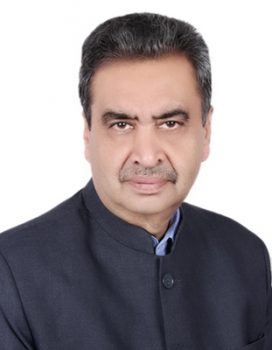 Ashok Juneja, President, The Textile Association (India) (TAI)
Ashok Juneja, President, The Textile Association (India) (TAI)
Overall sentiments are positive toward Budget 2021 being growth-oriented. Although, Textile Industry was looking for some immediate & major action towards inverted GST Structure, Removal of ADD on Viscose fiber, etc. but it is missing. Even then nothing much is there to criticize. It is an attempt to empower the Indian textile industry to become globally competitive, attract large investments, and boost employment generation. The taxation changes proposed in the Budget will help and benefit MSMEs. Measures taken to simplify GST are praiseworthy with the hope that Government will take corrective measures to smoothen the GST further by removing anomalies such as the inverted duty structure. The focus is on Atamnirbhar Bharat to promote local business. But the imposition of BCD on cotton is a matter of deep concern for cotton textile producers.
The establishment of 7 Mega Integrated Textile Region & Apparel Parks MITRA) aims to create a world-class infrastructure with plug and play facilities to enable the creation of global champions in exports. These parks will be set up over 1,000 acres of land with world-class infrastructure over 3 years. It will enable the creation of global champions in textile export. It will help to increase our export position for which we are struggling against small nations like Bangladesh, Vietnam, etc. With the concept of these mega parks with a plug and play model, the Indian Textile and apparel sector – particularly SMEs can work on scale and build competitiveness in manufacturing. It will help in manufacturing excellence. Further, these parks can be aligned with Sustainable Goals to attract international buyers as well as investors. Need is to select the locations appropriately considering all factors.
The intention to put the custom duty on cotton from Nil to 10 percent may be to improve the condition of the farmers. Cotton and cotton waste shall now onwards attract a basic customs duty of 5 percent and 10 percent respectively. Also, Cotton shall have the additional burden of Agriculture Infrastructure and Development Cess at the rate of 5 percent which would increase the levy up to 10 percent. It is not welcome by Cotton Industry. Apprehension is, it will contribute to the shoot-up of domestic cotton prices resulting in weakening the competitiveness & sustainability of cotton textile & export which is at present is strength of the Indian T & A Industry. We can say there is a mixed reaction. The majority views are that the levy of 10 percent duty will not benefit the cotton farmers as the normal import of 12 to 14 lakh bales per year accounts for only around 3 percent of Indian cotton production and consumption and that also for such cotton which is not produced in India. No doubt, the import of cotton by Indian spinners is expected to decline by this measure.
Nylon chain is brought on par with polyester and other man-made fibres, basic customs duty (BCD) rates on caprolactam, nylon chips and nylon fibre & yarn have uniformly reduced to 5 percent from the earlier 7.5 percent. The existing status is that India is a net importer of these products as domestic capacity is lesser than demand. It is a welcome step. It will make the MMF industry to be more competitive. No need to mention, one of the weakest sections of our export is MMF. It will be a step forward to improve.
We welcome this increase in budget allocation for textile & specifically enhancing allocation for Amended TUFS. It will definitely help to clear the outstanding subsidy, which is much needed in this crisis. Budget allocation to the Textile Ministry has been increased to Rs. 3631.64 crores for the year 2021-22 as against last year’s revised allocation of Rs. 3300 cr. For Amended TUFS, the increase is from Rs. 545 cr to Rs.700 cr.
Clean air & Renewable energy is touched by Hon. Minister during her speech but nothing is mentioned about Water conservation & wastewater management. Textile is a water-intensive industry & also one of the grossly polluting industries which may be discharging wastewater more than100 Kilo liters a day. It needs further attention.
 Mr. Vinod Kumar Gupta, Managing Director, Dollar Industries Limited
Mr. Vinod Kumar Gupta, Managing Director, Dollar Industries Limited
The pandemic has affected all sectors globally and the textile industry has been no exception to the same. The focus of the Government in this Budget 2021 is on expenditure wherein 34% is on capital infrastructure which in turn is going to generate employment. Even though the budget is focused on expenditure the fiscal deficit is kept below 10% which will be bought down to 4.5% in 2025.
The disinvestment and monetization reforms will help in economical development. Core sectors like Steel, Cement, Infrastructure, Insurance and Banks are big beneficiaries in the Budget. Long term roadmap on infrastructure and visibility on duties & taxes will make life easier for industries at large. The Budget of 2021 enables our indigenous textile industry to become globally competitive. This in turn shall make India a competitive manufacturing and exporting hub for the sector. The announcement of the set-up of 7 National Textile Park is one such step in that direction. There was no reduction/relief on personal taxation side, however, the good part is that we did not see levy of any additional cess.
A welcome move by the Government is putting more trust on the taxpayer and reduction in compliance will lead to reignite animal spirit amongst industry and business community. Overall, this is a pragmatic and growth-oriented budget and for the Indian textile industry it is a great step forward towards realising the end goal of ‘AtmaNirbhar Bharat.’
 Rajendra Agarwal, Managing Director, Donear Industries Ltd
Rajendra Agarwal, Managing Director, Donear Industries Ltd
“Due to the Covid-19 pandemic, like many other industries, the textile industry too underwent numerous challenges, impacting demand and supply, due to the change in consumer buying behaviour and the consumption pattern.
With the vision of establishing a USD 5 trillion economy, the manufacturing sector will have to grow in double digits and become a part of the global supply chain, as highlighted by the Hon’ble Finance Minister. Taking the above into consideration, the Production Linked Incentive (PLI) Scheme had been launched. In addition to this, the budget has certainly opened up avenues to encourage global competition, attract large investments and boost employment generation via the launch of Mega Investment Textiles Park (MITRA), wherein, seven Textile parks will be established over the course of 3 years. Emphasising the Indian government’s initiative of Atmanirbhar Bharat, and with imports being drastically cut down, there is less opportunity for new entrants, which will in turn strengthen the position of local players (like us) who can fill these niches.
Additionally, the Union Budget 2021 also announced the bringing of nylon chain on par with polyester and other man-made fibers, reducing BCD rates on caprolactam, nylon chips and nylon fiber & yarn to 5%, aiding the textile industry.
Therefore, 2021-22 seems to be the year of revival for the textile industry as there are good tidings expected for the textile industry from manufacturing, consumption, employment generation and from a boosting demand standpoint.”
 M.A. Ramasamy, Chairman, PDEXCIL
M.A. Ramasamy, Chairman, PDEXCIL
The Hon’ble Union Finance Minister, Nirmala Sitharaman presented her second Union Budget 2021-22 in the Lok Sabha recently. On behalf of Powerloom Industry, Chairman, PDEXCIL congratulates the Hon’ble Finance Minister for bringing out the Union Budget 2021-22 focusing on Economic Development which will give the much needed impetus to the Indian economy.
I welcome the scheme of Mega Investment Textiles Parks (MITRA) wherein 7 Textile Parks will be established over 3 years which will enable the textile industry to become globally competitive, attract large investments and boost employment generation. As stated it will create world class infrastructure & facilities which will raise our global export level. To bring the nylon chain on par with polyester and other man-made fibres, basic customs duty (BCD) rates on caprolactam, nylon chips and nylon fibre & yarn will be uniformly reduced to 5 per cent, Finance Minister Nirmala Sitharaman said in Parliament while presenting budget. This will help the textile industry, MSMEs, and exports.
To benefit cotton and silk growers, the Finance Minister also proposed to raise customs duty on cotton from nil to 10 per cent but the industry, associations, as well as PDEXCIL would like to have duty reverted to nil as the type of cotton which is imported is not indigenously manufactured.
Further, to enable the Indian textile industry to become globally competitive, attract large investments and boost employment generation,) will be launched in addition to the Production Linked Incentive scheme (PLI).
On workers and labourers, the Hon’ble Finance Minister said, “We will conclude a process that began 20 years ago, with the implementation of the 4 labour codes.” She added that minimum wages will apply to all categories of workers, and they will all be covered by the Employees State Insurance Corporation (ESIC).
“Women will be allowed to work in all categories and also in the night-shifts with adequate protection. At the same time, compliance burden on employers will be reduced with single registration and licensing, and online returns,” she said, this will boost our textile industry.
 Prashant Agrawal, Managing Director, BRFL Textiles Private Limited (BTPL)
Prashant Agrawal, Managing Director, BRFL Textiles Private Limited (BTPL)
“We welcome the government’s landmark decision of setting up seven mega textiles parks, which will play a significant role in the growth of the Indian textile industry. Driven by government’s larger objective of Make in India, this positive step will facilitate large scale investments, boost employment and enhance exports, thereby strengthening the global leadership of Indian textiles at a time when the Indian economy is getting back to normalcy. We also believe that the duty reduction on nylon raw materials is a step in the right direction of further promoting the man-made fibre garment segment.”
 Dhirubhai Shah, Chairman, Shahlon Silk Industries Ltd.
Dhirubhai Shah, Chairman, Shahlon Silk Industries Ltd.
Chairman of Shahlon silk welcomed the Union Budget 2021-22. He continues that “The government’s focus on increasing domestic manufacturing share of specific textile products is clearly visible through incentive schemes and increasing capex in the recent budget for FY22. We believe that the demand of fabrics and yarns will pick-up significantly in both domestic & export markets.”
 Chirag Pittie, Whole time Director, SVP Global Ventures Ltd
Chirag Pittie, Whole time Director, SVP Global Ventures Ltd
Chirah Pittie welcomes the Union Budget 2021-22 in the Lok Sabha recently “Government announcement for setting up Mega Investment Textiles Parks (MITRA) in addition to the PLI scheme will create tremendous opportunities for the yarn manufacturing industry. All investments and schemes proposed for downstream garment and other textile products manufacturing will boost demand for yarn.”


